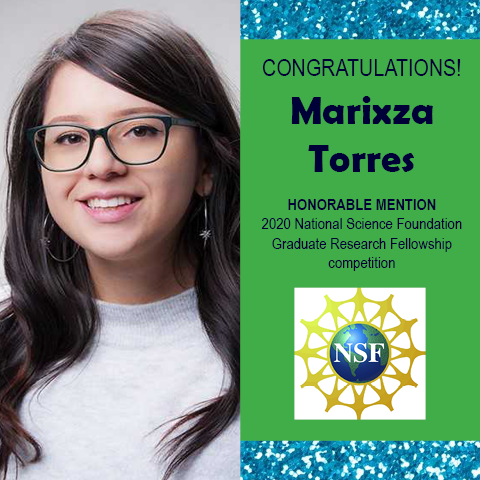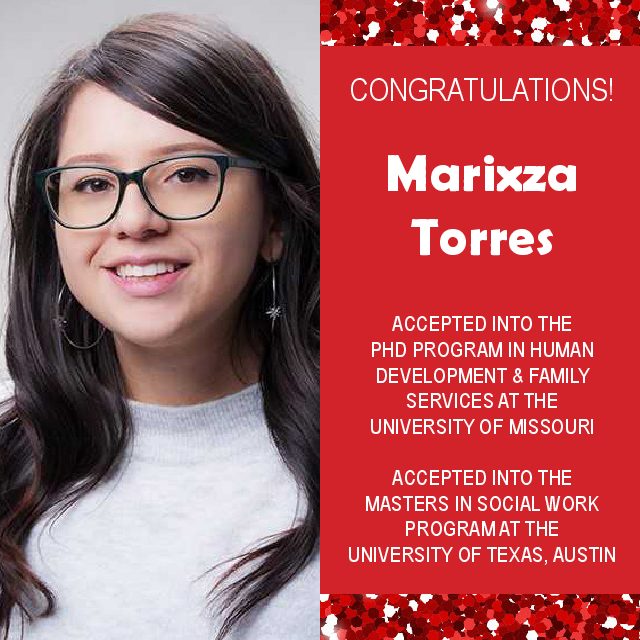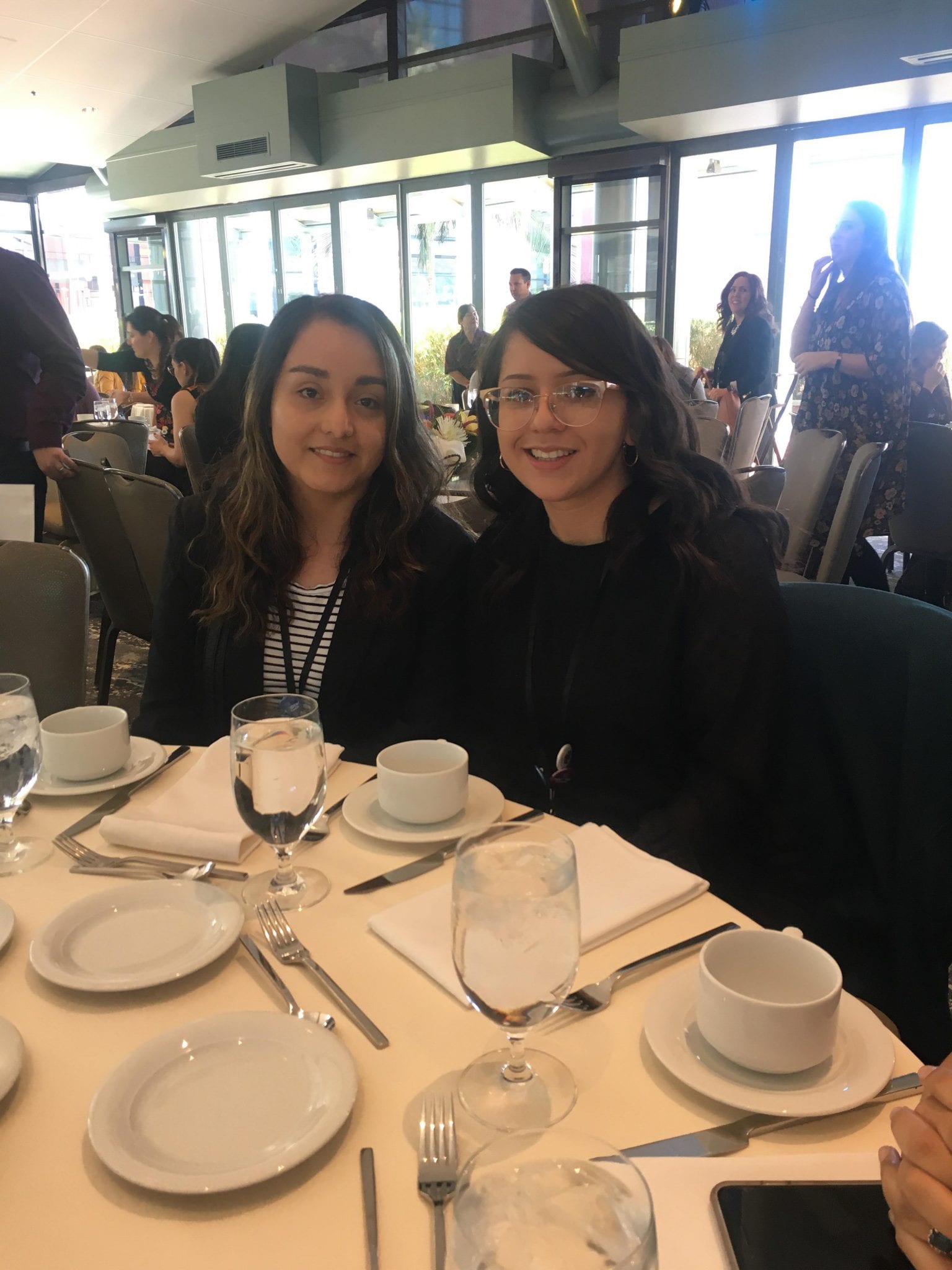Marixza Torres
Marixza Torres graduated from Eastern Washington University in 2020 with a bachelor’s degree in Applied Developmental Psychology with a minor in Chicano studies. For her 2018 EWU McNair Summer Research Internship, Marixza conducted research on the cultural obstacles faced by families of Latinx young adults with autism. In 2019, she completed the Summer Research Opportunities Program at the University of Notre Dame. Through this internship, she examined the relationship between adolescent adjustment, dimensions of parenting and work orientation. Marixza presented on her research at several conferences and received an Honorable Mention for her National Science Foundation Graduate Research Fellowship Proposal in 2020.
Marixza was accepted into a Master’s of Social Work program at the University of Texas, Austin; a PhD program in Human Development and Family Services at the University of Missouri; and a Psychology PhD program at the University of California, Irvine, where she began attending in the Fall 2020 with full funding. Marixza was been awarded a highly competitive and prestigious National Science Foundation Graduate Research Fellowship (NSF GRF) in 2021.
2019 Summer Research Internship at Notre Dame under Dr. Dawn M. Gondoli
Research Title: Predicting Work Orientation among Adolescents with ADHD:
Importance of Co-Occurring Problems and Parenting
Abstract: It is theorized that deficits in work orientation are an underlying feature of attention-deficit/hyperactivity disorder (ADHD). However, there is heterogeneity in the population and, while typical symptoms of ADHD may contribute to lack of work orientation, it is unclear what factors are likely to influence work orientation beyond ADHD symptoms. The goal of the current study was to examine relations between adolescent adjustment, dimensions of parenting, and adolescent work orientation. One-hundred seven mother-adolescent dyads participated in this study. Adolescents were previously diagnosed with ADHD. Mothers provided ratings of adolescent inattentive and hyperactive/ impulsive symptoms and adolescent internalizing and externalizing behaviors. Adolescents completed IQ assessment and provided ratings of their mothers’ parenting behavior and their own work orientation. Hierarchical regression analysis examined the relative contribution of ADHD symptoms, internalizing and externalizing behaviors, and mothers’ parenting to the prediction of adolescent work orientation. Mothers’ positive parenting and involvement accounted for unique variance in work orientation over and above adolescent ADHD symptoms and internalizing and externalizing behaviors. These relations persisted after demographic variables were controlled.
2018 McNair Faculty Research Mentor: Dr. Christina Torres-Garcia
Abstract: The recent literature concerning Latinx families with autistic children sheds light on the unique challenges that they face due to numerous barriers existing within the health care services, including the limited language translation and culturally competent personnel. These factors have subjected Latinx families to faced challenges not only as they collaborate with the health system but also as they care for their child with autism (Lopez, 2014). Additionally, experiences within the literature of families with autistic children are underrepresented even though rates are increasing (Montiel-Nava, 2017). This research project will follow closely a dissertation studies conducted by Dr. Sanchez in Chicago, and a quantitative research project by Ms. Iland in California (Iland, 2012; Sanchez 2006). Utilizing three surveys including the Family Needs Survey, Caring for My Child Survey (Bailey & Simeonsson, 1988; Iland 2007) and the Bias and Cultural Competence Survey (Johnson, 2014), this research assists in filling the gap in the literature focusing on the Pacific Northwest. Highlighting the experiences of Latinx family with autistic children, our quest is to use this study for a call to action for health administrators to modify their services to be culturally competent for Latinx communities.

EWU McNair Alumna Marixza Torres Awarded National Science Foundation Fellowship

EWU McNair Scholar Marixza Torres Accepted into Additional PhD Program

EWU McNair Scholar Marixza Torres Awarded Frances B. Huston Medallion

EWU McNair Scholar Marixza Torres Accorded Honorable Mention from NSF








